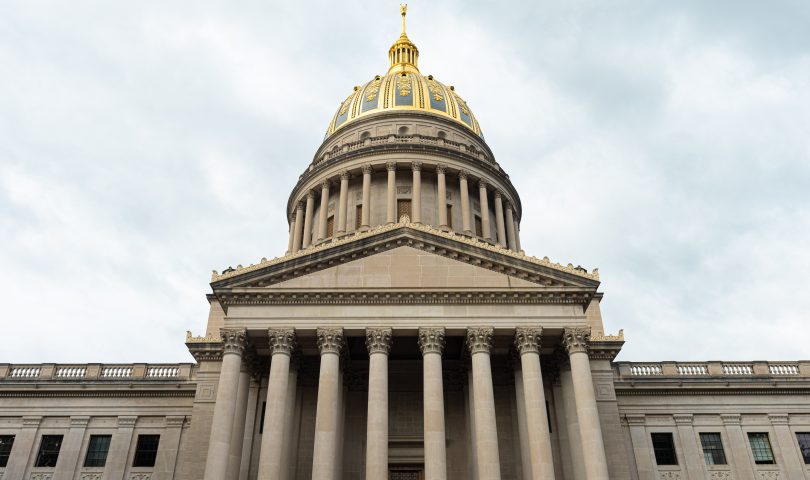A controversial bill affecting West Virginia’s unemployment system is now law after Gov. Jim Justice took no action on it.
The governor had until midnight Wednesday to sign or veto dozens of bills. By about 5:30 p.m., the governor’s office sent out a statement saying he had taken action on all of them.
Left untouched were Senate Bill 841, which was the unemployment bill, and House Bill 4911, which was a bill loosening regulations on the purchase and consumption of raw milk.
By Thursday, the landing pages for those bills on the Legislature’s website each said “Became law without Governor’s signature.”
Vetoes come with a message stating the governor’s objections. When the governor signs a bill, that’s an acknowledgment of general agreement even if there’s some quibbling on details.
But with a bill becoming law without action by the governor, there’s not necessarily an explanation. The governor’s office so far has provided no context. When reporters asked about the unemployment bill in news briefings leading up to the bill-signing deadline, Justice said he was still considering that one. “We’re reviewing,” Justice said last week.
The bill freezes employer contributions and freezes benefits for people who lose their jobs. The changes would become effective July 1.
The administration’s representative for the unemployment system testified during the regular legislative session that changes are needed. Scott Adkins, acting director of Workforce West Virginia, testified before lawmakers that reform is necessary to shore up the state’s unemployment trust fund, which has a balance of just shy of $400 million.
State officials, during those legislative meetings, cited economic models showing that a prolonged unemployment rate of 10% could bankrupt the trust fund in 91 weeks.
“We’re trying to be proactive because we’re going in the wrong direction on that trust fund balance,” Adkins told senators weeks ago. “Severe recession —18 months, and we’ll be looking to this body for funding, or we’ll be looking to the feds.”
Lawmakers considered a range of proposed changes to the system with debate coming to a head in the last days of the session. The Senate majority made unemployment system changes a priority. The majority in the House of Delegates had a harder time landing on changes that most could support.
The final version of the bill freezes employer contributions to the unemployment trust fund at $9,500.
The West Virginia Chamber of Commerce expressed support for that change, saying it provides predictability for employers.
“The West Virginia Chamber is happy to see Senate Bill 841 become law. This bill will provide stability to the state’s unemployment system and prevent a series of cascading tax increases on businesses across the state,” according to a statement from the Chamber.
“Furthermore, this bill will continue the strong health of the state’s unemployment compensation fund, ensuring its availability for those who need it.”
West Virginia labor organizations fought against the changes, saying they will penalize workers who lose their jobs. A major element of the criticism is that the freeze would lock in benefits — even if wages go up overall — until the Legislature acts again.
For people who are unemployed, the bill sets a maximum benefit of $662 and keeps the maximum number of weeks at 26. That also represents a freeze of current benefits.
The bill would require at least four work search activities a week such as registering with the state’s labor exchange system or taking a civil service exam.
“Workers and their families hope Gov. Justice and legislative leaders sleep well tonight,” said Josh Sword, president of the West Virginia AFL-CIO.
“They prioritized ‘fixing’ a problem that doesn’t exist. They should do better — which they won’t — so workers and their families need to elect better.”




